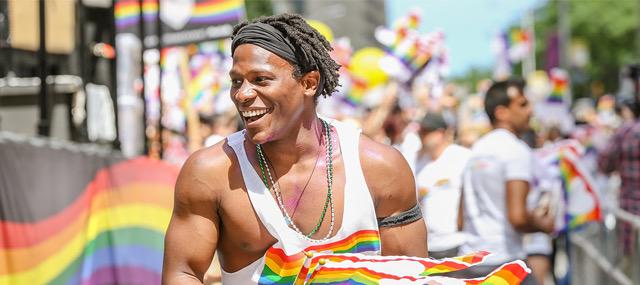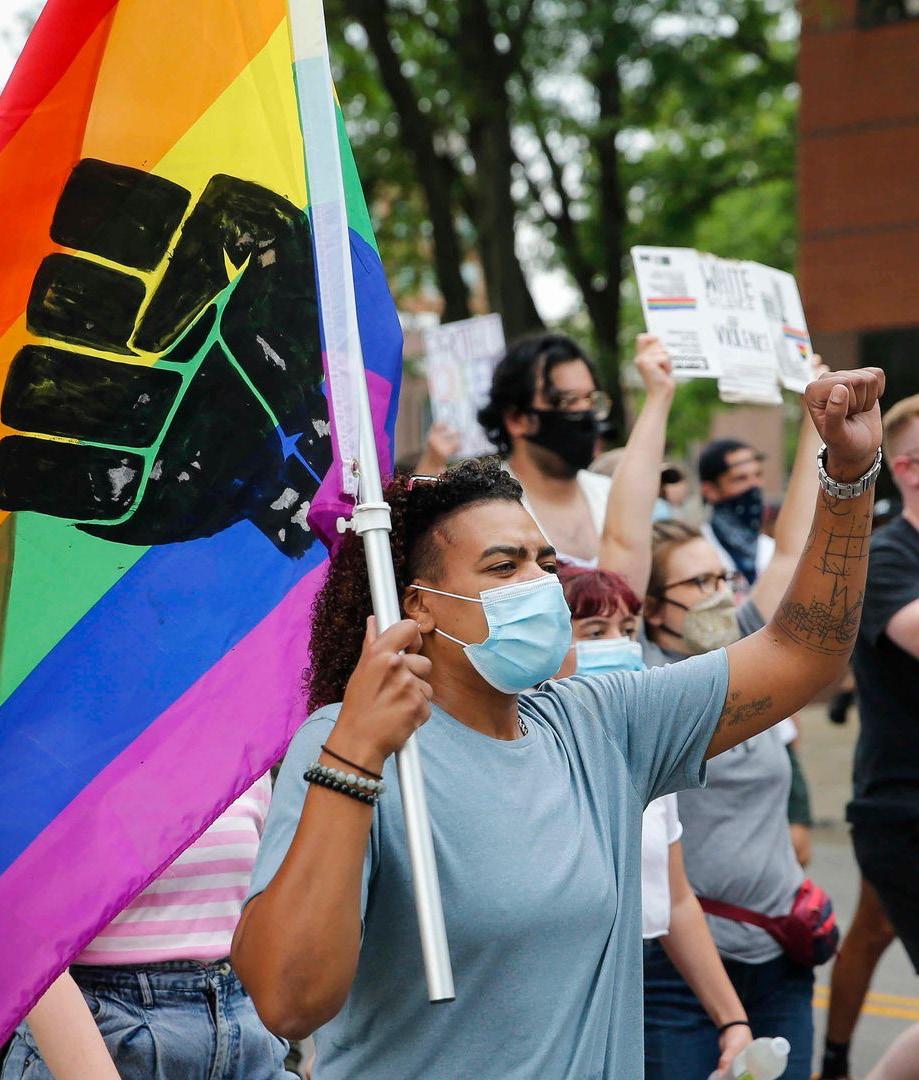
2 minute read
June Is Pride Month
Lesbian, Gay, Bisexual, Transgender and Queer (LGBTQ) Pride Month is currently celebrated each year in the month of June to honor the 1969 Stonewall Uprising in Manhattan. The Stonewall Uprising was a tipping point for the Gay Liberation Movement in the United States. In the United States the last Sunday in June was initially celebrated as "Gay Pride Day," but the actual day was flexible. In major cities across the nation the "day" soon grew to encompass a month-long series of events. Today, celebrations include pride parades, picnics, parties, workshops, symposia and concerts, and LGBTQ Pride Month events attract millions of participants around the world. Memorials are held during this month for those members of the community who have been lost to hate crimes or HIV/AIDS. The purpose of the commemorative month is to recognize the impact that lesbian, gay, bisexual and transgender individuals have had on history locally, nationally, and internationally.
In 1994, a coalition of education-based organizations in the United States designated October as LGBT History Month. In 1995, a resolution passed by the General Assembly of the National Education Association included LGBT History Month within a list of commemorative months. National Coming Out Day (October 11), as well as the first "March on Washington" in 1979, are commemorated in the LGBTQ community during LGBT History Month.
Advertisement
Beginning in 1991, with DC Black Pride , the Black Gay Pride movement began as a way to provide Black LGBTQ+ people an alternative to the largely white mainstream LGBTQ+ movement.

The movement serves as a way for Black LGBTQ+ people to discuss specific issues that are more unique to the Black LGBTQ+ community and celebrate the progress of the Black LGBTQ+ community.
While the mainstream gay pride movement, often perceived as overwhelmingly white, has focused much of its energy on same-sex marriage, the Black Gay Pride movement has focused on issues such as racism, homophobia, and lack of proper health and mental care in black communities.

Black Pride is the gateway to the greater LGBT community experience for many Black LGBTQ+ people. Rather than encouraging separation, Black Prides encourage awareness of self and community, respect, dignity and many attendees of Black Pride events have returned to their homes to come out to friends, family and their communities. Attending events and seeing people who look like oneself with many of the same shared experiences, contributes to building stronger, healthier LGBT communities and is an effective way to combat homophobia and stigma in the Black community and racism in the greater LGBT community along with overcoming the cultural, communal and institutional barriers created by isms and phobias. All are welcome to attend Black Prides.
Black Prides are planned and managed by the organizations dedicated to : building solidarity; health and wellness; promoting unity; and ensuring the development of education, economic empowerment, and individual and collective work, responsibility and self-determination.














